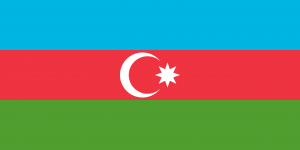Language/North-azerbaijani/Grammar/Plurals
Hi North Azerbaijani learners! 😊
In this lesson, we will learn about plurals in North Azerbaijani. We will cover the rules for forming plurals, including irregular forms. We will also explore cultural information and interesting facts related to plurals in North Azerbaijani. By the end of the lesson, you will be able to form plurals and use them in a sentence correctly.
Don't forget, to improve your North Azerbaijani Grammar, you can also use the Polyglot Club website. Find native speakers and ask them any questions!
Let's get started. 😎
Forming regular plurals[edit | edit source]
Plurals in North Azerbaijani are formed by adding suffixes to the singular form of nouns. There are two main suffixes used to form plural nouns in North Azerbaijani - "lar" and "lər". They are used interchangeably and do not indicate any grammatical distinction.
Here is a table showing the rules for forming regular plurals in North Azerbaijani:
| Singular Form | Plural Form |
|---|---|
| Kitab (book) | Kitablar/Kitablər (books) |
| Uşaq (child) | Uşaqlar/Uşaqlər (children) |
| Stol (chair) | Stollar/Stollər (chairs) |
| Şirin (sweet) | Şirinlər/Şirinlər (sweets) |
Irregular plurals[edit | edit source]
There are some irregular plural forms in North Azerbaijani. It is important to memorize these forms as they do not follow the regular suffix pattern. Here are some examples:
| Singular Form | Plural Form |
|---|---|
| Ata (father) | Atalar (fathers) |
| Ana (mother) | Analar (mothers) |
| Qardaş (brother) | Qardaşlar (brothers) |
| Bacı (sister) | Bacılar (sisters) |
Using plurals in sentences[edit | edit source]
To use plurals in sentences, it is necessary to pay attention to the agreement of verbs and adjectives with plural nouns. In North Azerbaijani, plural nouns are treated as singular feminine. This means that verbs and adjectives used with plural nouns are treated as if they were used with singular feminine nouns.
Here is an example dialogue to illustrate:
- Person 1: Istirahət edirsinizmi? (Are you resting?)
- Person 2: Bəli, biz bir az kitab oxuyuruq. (Yes, we are reading some books)
In the example above, the verb "reading" (oxuyuruq) agrees with the plural noun "books" (kitab). The plural suffix "-lər" is not used because there is no need to show plurality in the verb.
Interesting facts[edit | edit source]
- North Azerbaijani, like Turkish, has a distinction between inclusivity and exclusivity in first-person plural pronouns. The exclusive "we" (meaning "us, but not you") is expressed as "biz". The inclusive "we" (meaning "us, including you") is expressed as "bizimiz".
- North Azerbaijani has unique kinship terms that reflect the deep cultural importance of family relationships. For example, "ana yanağı" means "maternal cheek", which is used to refer to a woman who is close to the speaker or who is a mother figure.

